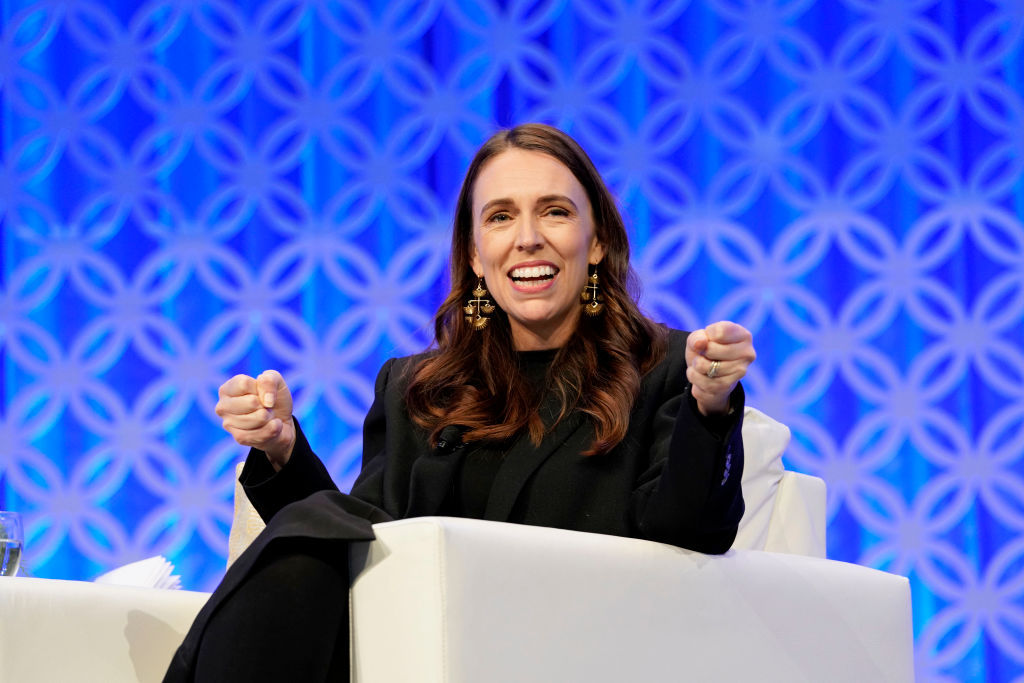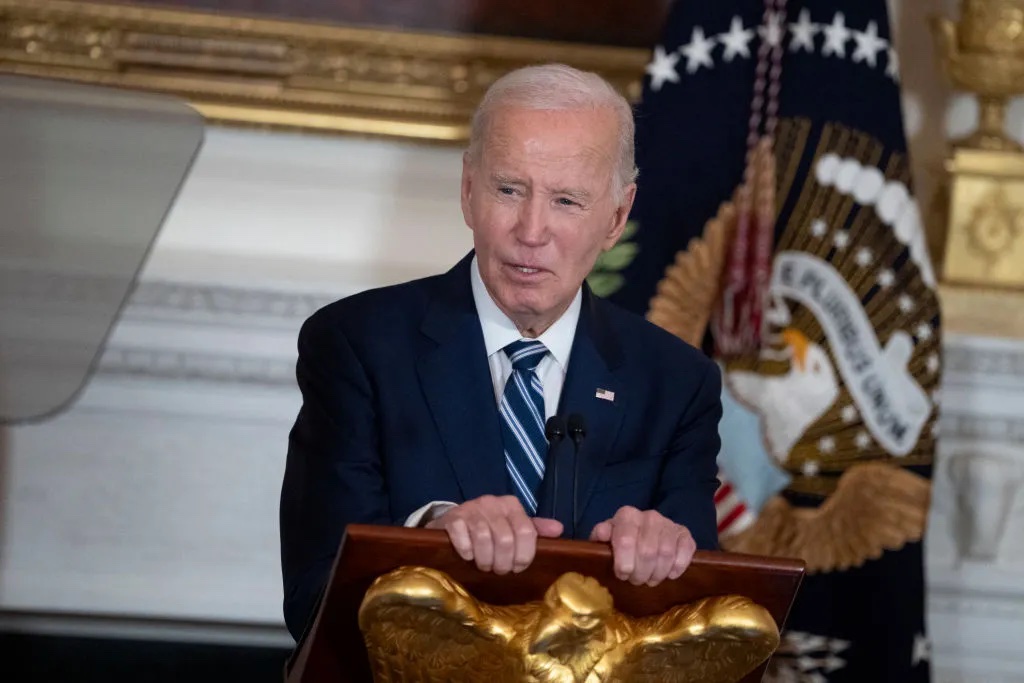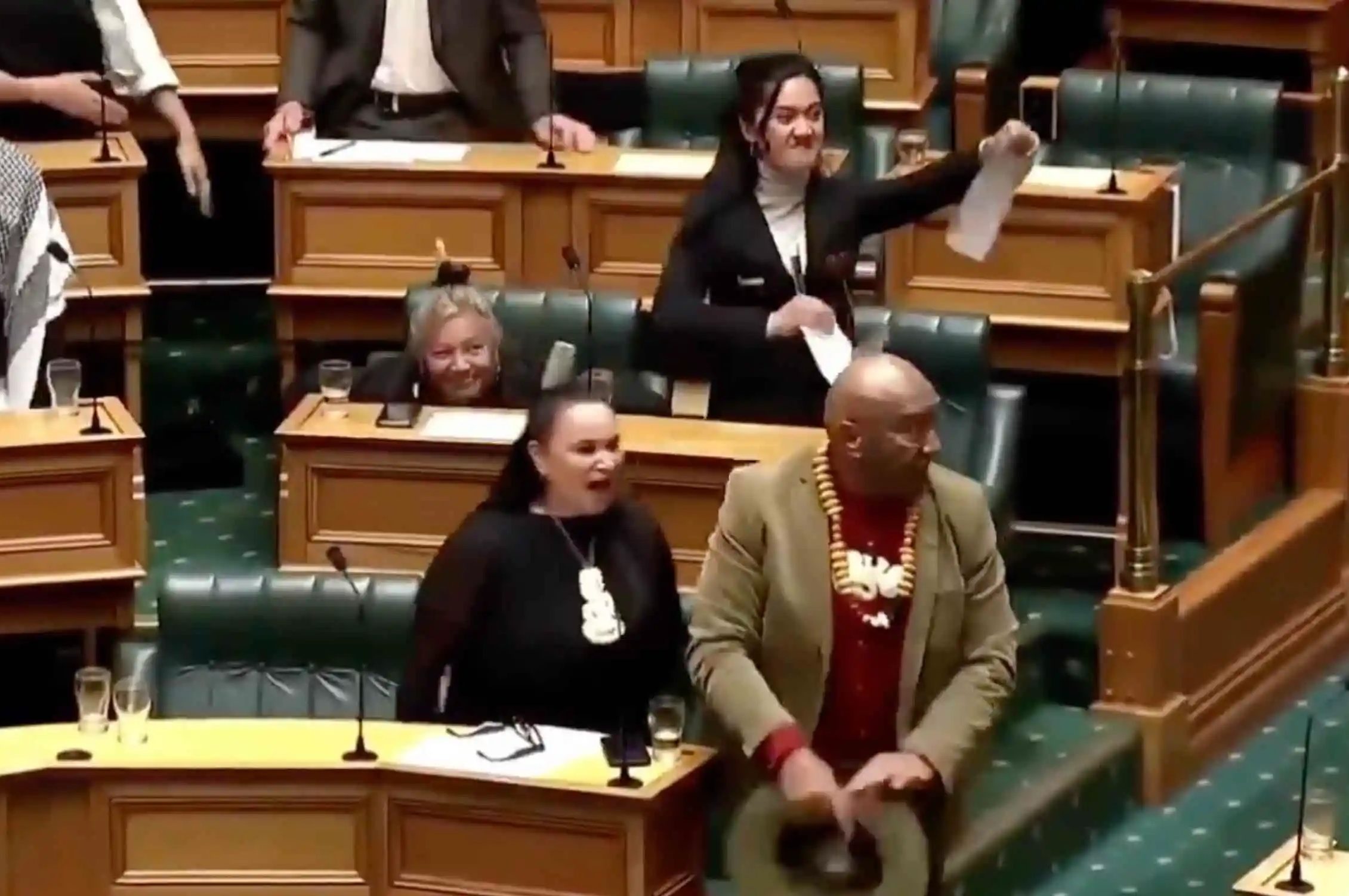Following the resignation of Jacinda Ardern, New Zealand’s Labour government will select its new leader, and the country’s next prime minister, in the coming days. There will then be a general election on October 14. And with Ardern’s departure, the spotlight is already beginning to shine on Christopher Luxon, the head of National, New Zealand’s main opposition party.
For some time, National has shuffled through a succession of leaders. In the shadow of Jacinda Ardern’s incandescent profile the party has lacked relevance, especially during the domestic trauma of a mosque shooting, and then international crisis of a pandemic. In New Zealand, leaders of the opposition struggle to gain traction at the best of times, and no amount of image consultants, shadow front bench re-jigging, hair dye, publicity stunts, listening tours, reboots or professing to be “not phased by the polls,” can change things much.
National have had a series of leaders who have failed to make their mark. There was an undisciplined, agricultural sort of chap, followed by a crotchety, antipodean pseudo-Thatcher; none connected with the public. In the 2020 election, the National Party was annihilated, and forced to watch on as Ardern’s Labour Party won so comprehensively that it could govern without coalition parties, something that hadn’t occurred since New Zealand shifted to proportional representation in the Nineties.
Then in November 2021 the party selected Christopher Luxon, a wealthy former business executive and chief executive officer of Air New Zealand.
This week had seen a record low level in business confidence and a thirty-two-year high in food prices. “It’s going to get worse, it’s going to get more painful and they need a government that’s going to get things done for them so they can get ahead,” Luxon said this week, following Ardern’s departure. He added that Ardern leaving does not cement National as the favorite to win the election and that he is focused on coming up with solutions for everyday New Zealanders.
This is boilerplate political stump stuff. Luxon knows that a combination of fatigue with an incumbent government, the departure of Labour’s strongest political asset and the oncoming ravages of a recession this year means he is odds on to lead a center-right government to power.
Luxon has the greatest attribute a center-right leader can have in New Zealand: blandness. New Zealanders quite like aspirational and successful leaders, but they have a sharp ear for pretense, conceitedness or — the most grievous mortal sin of all for a New Zealand public figure — pretentiousness.
Therefore for Kiwis, a successful entrepreneur without a scintilla of irony, rhetorical flair, notable hobbies, wit or even sartorial expression, whose defining quality is the bland absence of any particular defining qualities, is pretty close to the sweet spot.
Luxon also has that other prerequisite of an opposition leader, the ability to project competence and vision and eagerness to get stuck in while having a scarcely existent policy manifesto.
“The situation we’re in is incredibly alarming.” Luxon said, late last year. “When you see a rapidly deteriorating economic picture for the next three years, that’s a real challenge and a worry for New Zealanders.”
“We’re in a turnaround situation. And that does mean that you have to be bolder.”
In his maiden speech in parliament, Luxon praised Martin Luther King Jr. and Kate Sheppard, a New Zealand pioneer for the right of women to vote. This was part of a defense of the role in public life of Christians such as himself, an identity that “it seems it has become acceptable to stereotype.”
But even this religious aspect of Luxon’s beliefs is dimmed and dulled by an inoffensive blandness. Luxon has been described as an evangelical Christian. However, in 2021 he said he had not attended a church for five or six years.
Luxon’s views on abortion received media attention following his election as National’s leader. He confirmed that his personal views are anti-abortion, but he said he would not change abortion laws should he become prime minister.
During the pandemic, Luxon frequently took the government to task over logistics and timetables, but equably stated that he and the National Party strongly supported Covid-19 vaccination, and described vaccination as the best protection for people and their families.
This approach, and lack of any maverick qualities is important, because the New Zealand electorate, unlike other democracies in the modern age, has a large, malleable middle. Appealing to and locking down that ideological midrange is key to winning elections.
Luxon isn’t completely polished. Last year, while discussing superannuation, he was unable to answer how much a pension payment was. Before that, he got in a tangle over whether National supported a clean car discount, and then a clean car standard. Earlier this year, Luxon also appeared unaware that public transport in the country is heavily subsidized.
But despite these minor lapses, Luxon will likely be New Zealand’s prime minister. He has the wind at his back, a unified caucus, and a message of growth, personal responsibility and pragmatism that is being received well in a country that has begun to tire of an idealistic government that many feel has overpromised and underdelivered.
This article was originally published on The Spectator’s UK website.

























